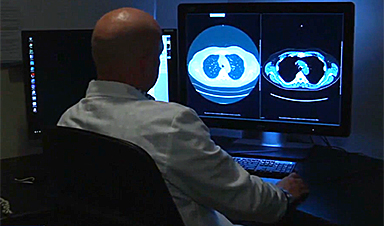A new study in the academic journal Machine Learning: Health discovers that ChatGPT can accelerate patient screening for clinical trials, showing promise in reducing delays and improving trial success rates.
Researchers at UT Southwestern Medical Centre used ChatGPT to assess whether patients were eligible to take part in clinical trials and were able to identify suitable candidates within minutes.
Clinical trials, which test new medications and procedures on the public, are vital for developing and validating new treatments. But many trials struggle to enrol enough participants. According to a recent study, up to 20% of National Cancer Institute (NCI)-affiliated trials fail due to low enrolment. This not only inflates costs and delays results, but also undermines the reliability of new treatments.
Currently, screening patients for trials is a manual process. Researchers must review each patient’s medical records to determine if they meet eligibility criteria, which takes around 40 minutes per patient. With limited staff and resources, this process is often too slow to keep up with demand.
Part of the problem is that valuable patient information contained in electronic health records (EHRs) is often buried in unstructured text, such as doctors’ notes, which traditional machine learning software struggles to decipher. As a result, many eligible patients are overlooked because there simply isn’t enough capacity to review every case. This contributes to low enrolment rates, trial delays and even cancellations, ultimately slowing down access to new therapies.
To counter this problem, the researchers have looked at ways of speeding up the screening process by using ChatGPT. Researchers used GPT-3.5 and GPT-4 to analyse 74 patients’ data to see if they qualified for a head and neck cancer trial.
Three ways of prompting the AI were tested:
- Structured Output (SO): asking for answers in a set format.
- Chain of Thought (CoT): asking the model to explain its reasoning.
- Self-Discover (SD): letting the model figure out what to look for.
The results were promising. GPT-4 was more accurate than GPT-3.5, though slightly slower and more expensive. Screening times ranged from 1.4 to 12.4 minutes per patient, with costs between $0.02 and $0.27.
LLMs like GPT-4 can help screen patients for clinical trials, especially when using flexible criteria. They’re not perfect, especially when all rules must be met, but they can save time and support human reviewers.”
Dr. Mike Dohopolski, lead author of the study
This research highlights the potential for AI to support faster, more efficient clinical trials – bringing new treatments to patients sooner.
The study is one of the first articles published in IOP Publishing’s Machine Learning series™, the world’s first open access journal series dedicated to the application and development of machine learning (ML) and artificial intelligence (AI) for the sciences.
The same research team have worked on a method that allows surgeons to adjust patients’ radiation therapy in real time whilst they are still on the table. Using a deep learning system called GeoDL, the AI delivers precise 3D dose estimates from CT scans and treatment data in just 35 milliseconds. This could make adaptive radiotherapy faster and more efficient in real clinical settings.
Beattie, J., et al. (2025). ChatGPT augmented clinical trial screening. Machine Learning: Health. doi.org/10.1088/3049-477x/adbd47.
News
Lab-grown corticospinal neurons offer new models for ALS and spinal injuries
Researchers have developed a way to grow a highly specialized subset of brain nerve cells that are involved in motor neuron disease and damaged in spinal injuries. Their study, published today in eLife as the final [...]
Urgent warning over deadly ‘brain swelling’ virus amid fears it could spread globally
Airports across Asia have been put on high alert after India confirmed two cases of the deadly Nipah virus in the state of West Bengal over the past month. Thailand, Nepal and Vietnam are among the [...]
This Vaccine Stops Bird Flu Before It Reaches the Lungs
A new nasal spray vaccine could stop bird flu at the door — blocking infection, reducing spread, and helping head off the next pandemic. Since first appearing in the United States in 2014, H5N1 [...]
These two viruses may become the next public health threats, scientists say
Two emerging pathogens with animal origins—influenza D virus and canine coronavirus—have so far been quietly flying under the radar, but researchers warn conditions are ripe for the viruses to spread more widely among humans. [...]
COVID-19 viral fragments shown to target and kill specific immune cells
COVID-19 viral fragments shown to target and kill specific immune cells in UCLA-led study Clues about extreme cases and omicron’s effects come from a cross-disciplinary international research team New research shows that after the [...]
Smaller Than a Grain of Salt: Engineers Create the World’s Tiniest Wireless Brain Implant
A salt-grain-sized neural implant can record and transmit brain activity wirelessly for extended periods. Researchers at Cornell University, working with collaborators, have created an extremely small neural implant that can sit on a grain of [...]
Scientists Develop a New Way To See Inside the Human Body Using 3D Color Imaging
A newly developed imaging method blends ultrasound and photoacoustics to capture both tissue structure and blood-vessel function in 3D. By blending two powerful imaging methods, researchers from Caltech and USC have developed a new way to [...]
Brain waves could help paralyzed patients move again
People with spinal cord injuries often lose the ability to move their arms or legs. In many cases, the nerves in the limbs remain healthy, and the brain continues to function normally. The loss of [...]
Scientists Discover a New “Cleanup Hub” Inside the Human Brain
A newly identified lymphatic drainage pathway along the middle meningeal artery reveals how the human brain clears waste. How does the brain clear away waste? This task is handled by the brain’s lymphatic drainage [...]
New Drug Slashes Dangerous Blood Fats by Nearly 40% in First Human Trial
Scientists have found a way to fine-tune a central fat-control pathway in the liver, reducing harmful blood triglycerides while preserving beneficial cholesterol functions. When we eat, the body turns surplus calories into molecules called [...]
A Simple Brain Scan May Help Restore Movement After Paralysis
A brain cap and smart algorithms may one day help paralyzed patients turn thought into movement—no surgery required. People with spinal cord injuries often experience partial or complete loss of movement in their arms [...]
Plant Discovery Could Transform How Medicines Are Made
Scientists have uncovered an unexpected way plants make powerful chemicals, revealing hidden biological connections that could transform how medicines are discovered and produced. Plants produce protective chemicals called alkaloids as part of their natural [...]
Scientists Develop IV Therapy That Repairs the Brain After Stroke
New nanomaterial passes the blood-brain barrier to reduce damaging inflammation after the most common form of stroke. When someone experiences a stroke, doctors must quickly restore blood flow to the brain to prevent death. [...]
Analyzing Darwin’s specimens without opening 200-year-old jars
Scientists have successfully analyzed Charles Darwin's original specimens from his HMS Beagle voyage (1831 to 1836) to the Galapagos Islands. Remarkably, the specimens have been analyzed without opening their 200-year-old preservation jars. Examining 46 [...]
Scientists discover natural ‘brake’ that could stop harmful inflammation
Researchers at University College London (UCL) have uncovered a key mechanism that helps the body switch off inflammation—a breakthrough that could lead to new treatments for chronic diseases affecting millions worldwide. Inflammation is the [...]
A Forgotten Molecule Could Revive Failing Antifungal Drugs and Save Millions of Lives
Scientists have uncovered a way to make existing antifungal drugs work again against deadly, drug-resistant fungi. Fungal infections claim millions of lives worldwide each year, and current medical treatments are failing to keep pace. [...]





















